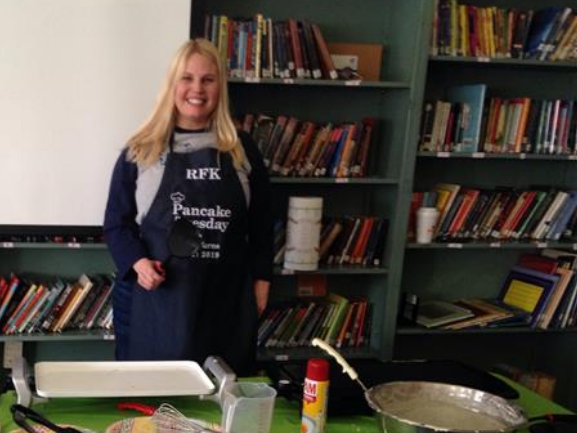SERVICE LEARNING BLOG
Service Learning... What does that mean to have service learning? One answer is Volunteering!!!! Kahne & Westheimer's article, "In The Service Of What? The Politics of Service Learning" summarizes the idea of learning and improving skills on how to become a Youth Development (YDEV) Worker or a teacher. From the political optimism of U.S. Presidents JFK and Ronald Reagan, education became a reemergence in forms of service learning because there are lots of volunteers who want to teach kids how to become better educators.
Kahne and Westheimer's powerful essay on Service Learning connects to the readings of Kozol and Johnson along with my first service learning visit back in end of September.
Connection #1: Kozol's Amazing Grace
The first connection to Kahne and Westheimer's article is from Jonathan Kozol's Article Amazing Grace. In this article, Kozol is trying to lead a discussion of what's happening in the world right now by comparing social injustice problems to a rat infestation. By doing this, Kozol is attacking against Social injustice "rats" by saying, "Rats, like injustice, are a constant threat to the people in this community" (Kozol 5). Kozol is trying to make this point as a lesson to all because it is getting away from teaching or working with youth as a YDEV worker.
Connection #2: Johnson's Privilege, Power and Difference
The second connection to Kahne and Westheimer's article is from Allan Johnson's Article Privilege, Power, and Difference. When we talk about service learning as a whole, it is to learn that community service is to work for a privilege. For example, Johnson said that, “privilege exists when one group has something of value that is denied to others simply […] because of anything they’ve done or failed to do” (Johnson 23). When he discusses about service learning as a privilege, we talk about how we can question ourselves after doing the service learning provided. These questions can be asked by yourself like "What did you learn from this experience?" "Are you ready/capable of teaching young people as a whole?" As educators or youth developers, we have to be aware and understand privilege is important for service learning.
Connection #3: My First Service Learning Visit
As we connected Kahne and Westheimer's article to the two articles from Kozol and Johnson, I would like to tell some stories from my service learning visits. Once I walked into the Robert Kennedy School where my service learning project takes place, I saw the building comes from the old days before education reforms in the 1990s. The significance of this moment is the differences between the old days where you handwrite papers and notes and the modern days where technologies played a major role in reforming education. I am saying this because the Service Learning article talks about how this is the moment where you compare educators who demonstrate the power of all students' learning levels to the old days where basic level of education happens./https://www.thestar.com/content/dam/thestar/news/gta/2019/06/05/torontos-rat-population-is-spreading-fast-why-isnt-the-city-taking-action-to-stop-them/_3two_rats.jpg)


Ryan, I liked the questions you came up with to ask after performing a or any service learning project, "What did you learn from this experience?", and especially, "Are you ready/capable of teaching young people...". I believe these are important questions that each of us need to ask after each LSP assignment because we do in fact need to understand what we are signing up for, a huge responsibility.
ReplyDeleteI can recall teachers I had when I was young who I'm fairly sure didn't take this responsibility very seriously, just phoning in their performance and collecting the paychecks, and unsurprisingly I don't recall most of their names, but I remember clearly the names of the teachers who demanded a lot from themselves and me as well, the teachers that really put themselves out there and made a big difference in my life.
Nice post Ryan! I really like how you set up your blog post! I just wanted to let you know that I used your post as my extended comments post. I like how you were very clear with stating your connections to the article!
ReplyDeleteI really appreciate and enjoy your clear and concise use of connections from previously discussed articles to bring your point on the topic at hand into focus. Nice work and great post.
ReplyDeleteHi Ryan! I liked how you were able to make such great connections to Kristof and Johnson's articles. I love how enthusiastic you are about service learning. Great post!
ReplyDelete